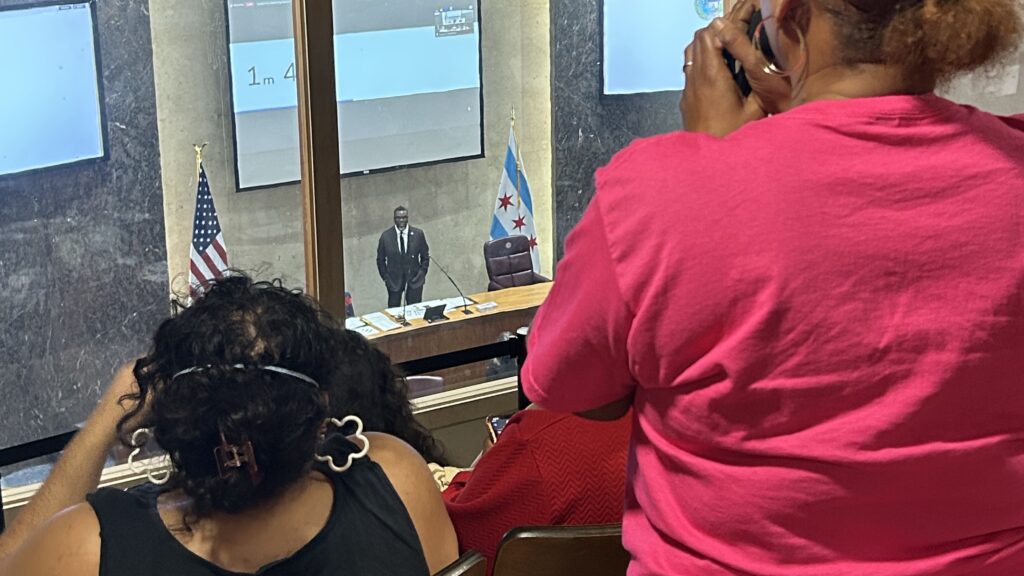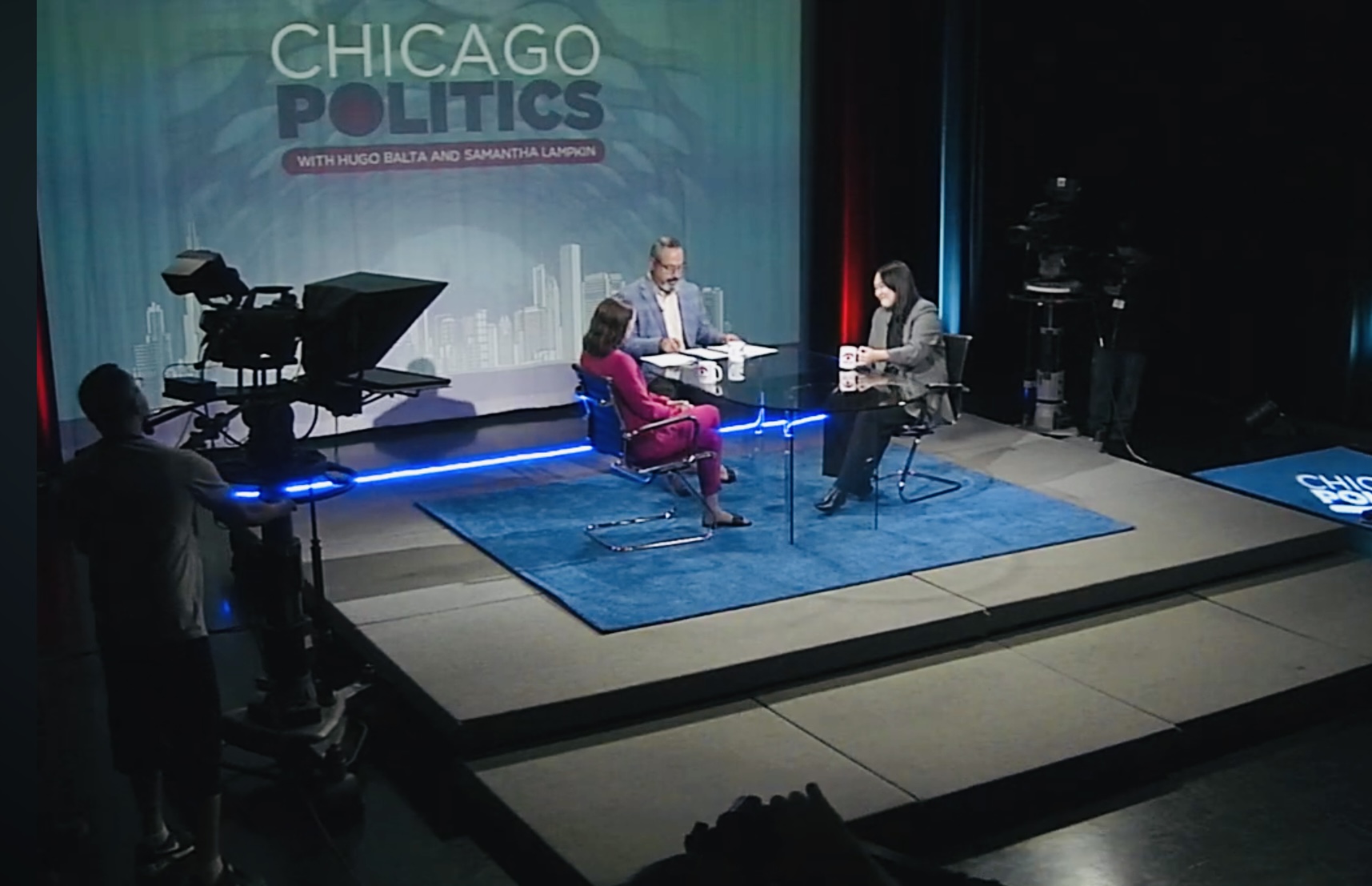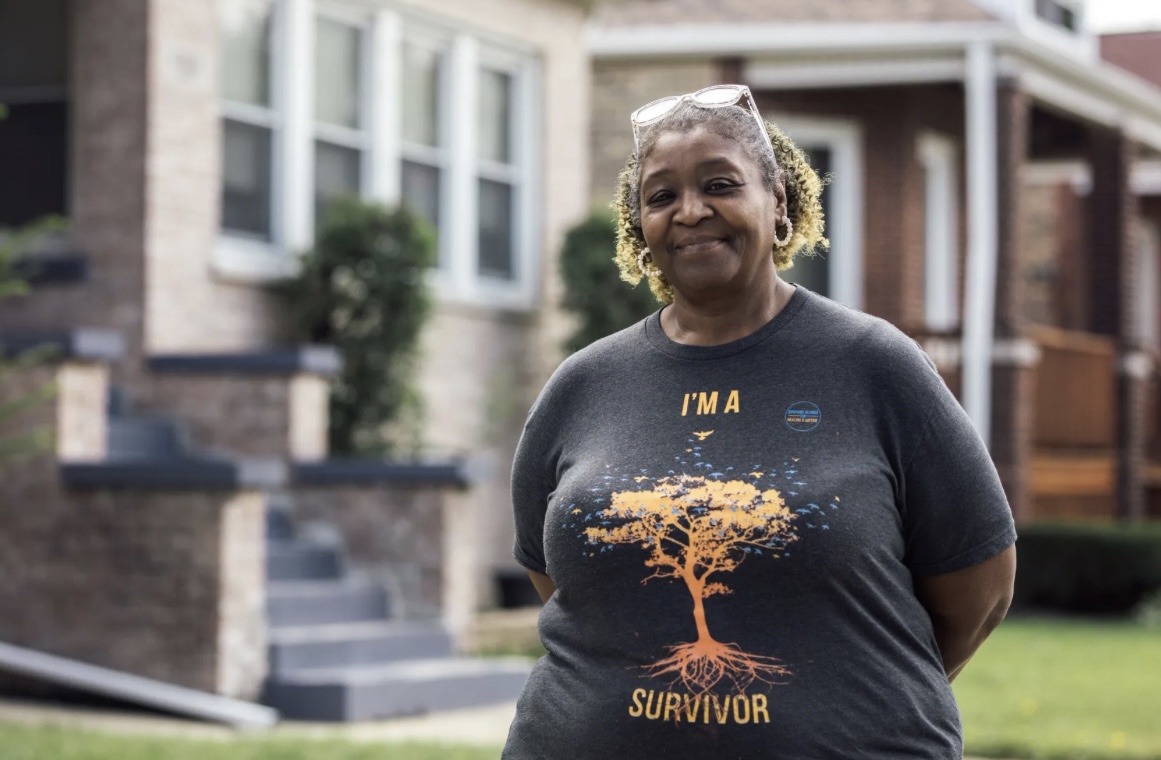Workers in Chicago will soon be guaranteed a minimum of 10 days of paid annual leave, thanks to an ordinance passed by the City Council on Thursday.
In a win for Mayor Brandon Johnson and his progressive allies, the Chicago City Council approved the “Paid Leave and Paid Sick and Safe Leave” ordinance by a 36-12 vote. The ordinance requires employers to provide workers at least five days of paid leave and five days of paid sick leave per year starting Jan. 1, doubling the minimum number of days that workers in the city are currently entitled to.
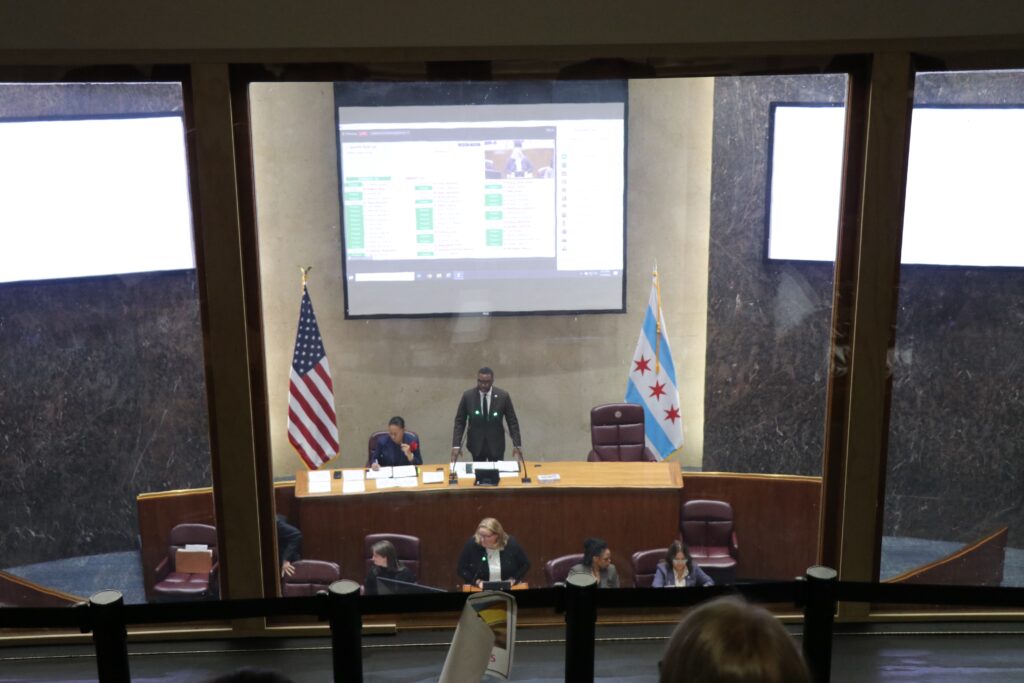
“This is about the workers in our great city. And every labor group, every workers rights group, 100% is in support of this effort,” said Ald. Michael Rodriguez (22nd), chair of the Committee on Workforce Development and the lead sponsor of the ordinance, during Thursday’s meeting.
The paid leave proposal, which was first introduced in the council in July, originally called for 15 days of paid time off, unlimited rollover of unused leave, and required all businesses to compensate employees for any unused leave upon their termination. After months of negotiations between labor organizers and the business community, the ordinance was amended to 10 days of paid leave, reduced the required rollover days to two, and exempted small businesses – those with 50 employees or fewer – from being required to pay out any unused leave.
Rodriguez said that the measure’s sponsors “worked closely with members of the business community” to reach those and other compromises, including a one-year grace period for businesses to adjust to the mandate before facing private action from employees. The ordinance was passed out of the Workforce Development Committee on Nov. 2 by a 13-2 vote, and was initially scheduled for a final vote by the full city council on Tuesday. The vote was delayed to Thursday when several council members moved for deferment.
“This is going to be an extra $1.3 billion in costs layered upon our employers when this goes into full effect, and there will be consequences for that,” said Ald. Brendan Reilly (42nd) on Thursday, one of the council members who moved to delay the vote two days prior.
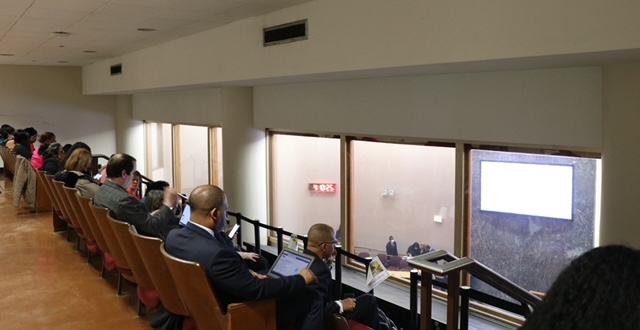
November 9, 2023. (Dominic Faria/MEDILL)
Calling the vote “a values statement” for Chicago, Johnson shared similar sentiments when he joined supporters for a celebratory press conference following the ordinance’s passage.
“Here in Chicago, we believe that everyone deserves the opportunity to take care of themselves, their loved ones, to do it without the burden of financial instability.”
Even with the compromise amendments, the ordinance is still one of the most generous paid leave policies in the nation, and goes beyond an Illinois law passed in March that guarantees workers across the state at least five days of paid leave. The state’s Paid Leave for All Workers Act also goes into effect on Jan. 1.
The reach of the ordinance beyond state requirements was one of the primary concerns for opponents of the ordinance, including Reilly, who believes Chicago’s paid leave mandate will have a “pronounced impact” on businesses in so-called border wards – those adjacent to neighboring suburban municipalities where employers can operate under the state’s less-burdensome paid leave requirements.
But with more than enough support to pass, the ordinance sailed through City Council just over two hours after the meeting began, prompting cheers and celebration from the various pro-labor groups in attendance.
“Today was a huge victory. [This ordinance] is forward-thinking, it’s protective, and it’s truly good for workers and for businesses. Healthier workers make for healthier businesses,” said Sharmili Majmudar, Executive Vice President of Policy, Programs, and Research at Women Employed, after Thursday’s meeting.
Women Employed is a Chicago-based non-profit that advocates for women in the workforce. Majmudar says that her organization has been pushing for more expansive paid leave policies “for decades” and that Thursday’s vote “represents the latest forward movement.”
“We’re just so happy for the workers who are now going to benefit from having, really, what all of us should have, which is the basic right to take care of ourselves and our families. And to do so without jeopardizing our income and our livelihood.”
In a statement Friday, a dozen pro-business groups said they were “extremely disappointed” in the city council’s decision, which they say will “devastate Chicago businesses” and “make it even more difficult to attract and retain” employers.
“We were always at the table. We just wanted to have a pragmatic, progressive ordinance, where you had employees and employers both at the table,” said Sam Toia, President & CEO of the Illinois Restaurant Association, one of the groups that signed on to the statement.
Toia said that his organization is hopeful that the Committee on Workforce and Development will quickly move to consider a small amendment to the ordinance proposed by Alds. Reilly and Jason Ervin (28th), which would allow for a 30-day “cure” period for businesses to rectify any paid leave issues with their employees before being subject to litigation.
“We wanted to get to a place that made Chicago the most progressive, but at the same time pragmatic,” he added. “So hopefully we can get back to the committee and try to help this a little bit, to help our small neighborhood businesses – from Rogers Park, to Jefferson Park, to Little Village, to Chatham, to Hyde Park.”
Businesses will now have a little over seven weeks to adjust to the new paid leave requirements.
Cover Photo: Nataki Rhodes, an organizer with One Fair Wage, urged the city council to approve the Paid Leave and Paid Sick and Safe Leave ordinance as Mayor Brandon Johnson watches from the council floor.
November 9, 2023. (Dominic Faria/MEDILL)
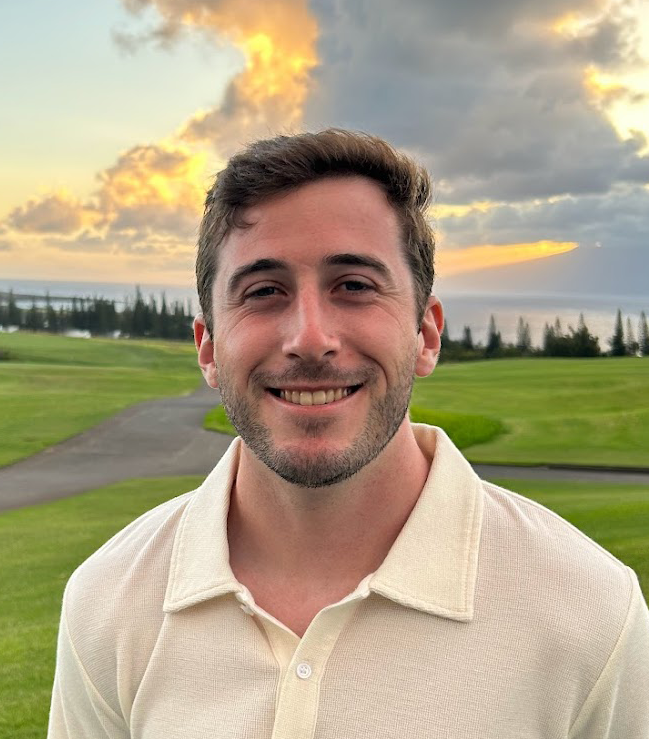
Dominic Faria is a graduate student at Northwestern University’s Medill School of Journalism. He’s a former editor at the University of California, Davis student newspaper, The California Aggie. A native of the San Francisco Bay Area, he has a particular passion for both sports and politics.
IL Latino News partners with Medill School of Journalism in providing students mentoring and real work experiences.
